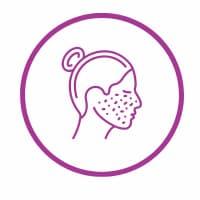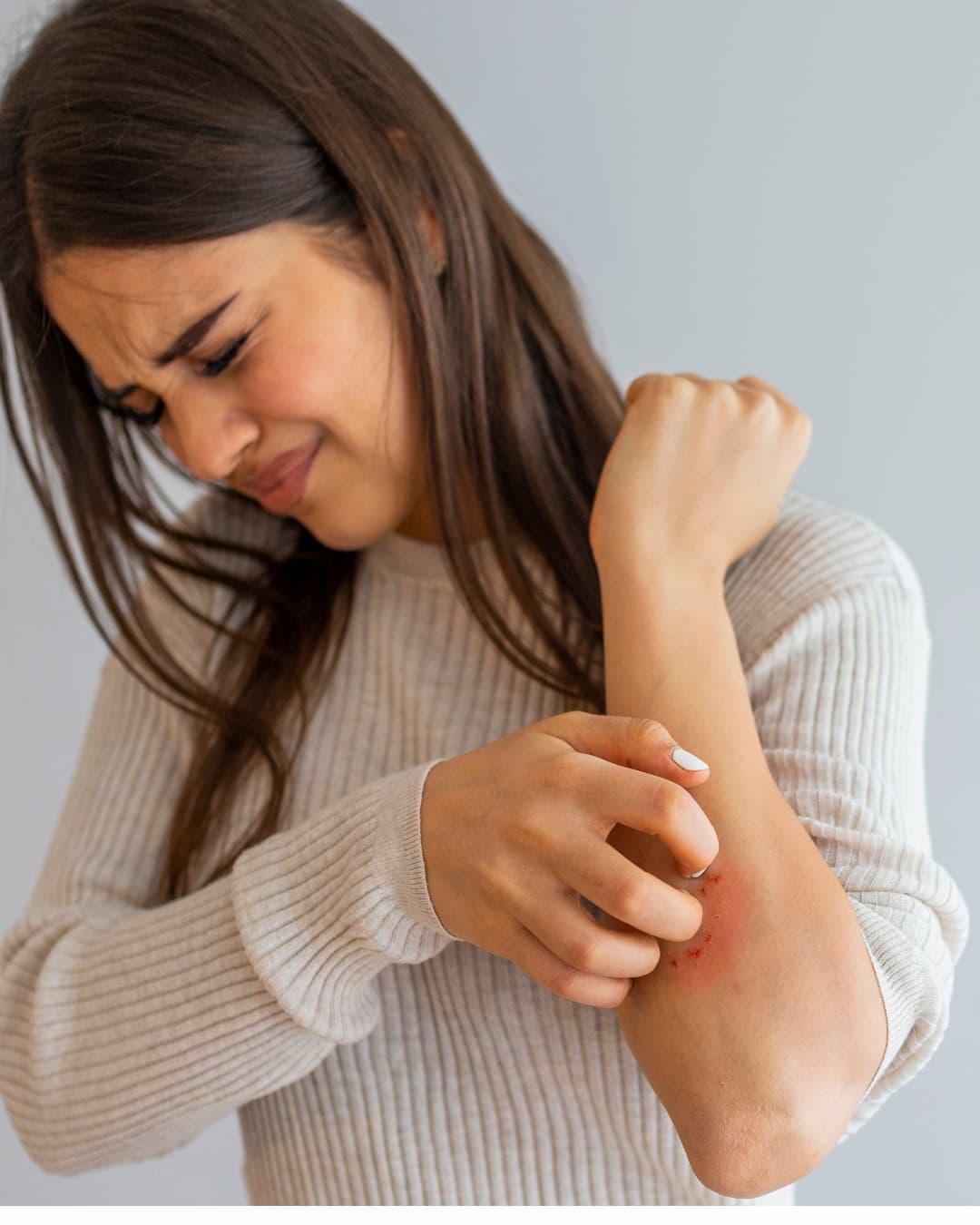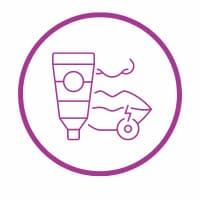
Acne Scar Treatments
After a deep pimple or acne breakout heals, it may leave behind a scar, known as an acne scar. It's important to note that not every instance of acne results in scarring.
Loading...
Psoriasis is a dermatological condition characterized by a rash featuring itchy, scaly patches, typically found predominantly on areas such as the knees, elbows, trunk, and scalp.
Psoriasis is an autoimmune skin condition characterized by the accumulation of excess skin cells on the skin's surface. This results in the appearance of red, itchy patches covered with white scales.
Psoriasis is a chronic autoimmune disease that impacts around 3% of the population. It typically manifests as scaly, itchy patches of red skin localized to areas like the elbows, knees, scalp, face, palms, or feet, but it can also occur elsewhere on the body, particularly in skin folds. The severity of psoriasis varies, ranging from minor dandruff-like spots to severe flare-ups. Psoriasis often coexists with other health conditions such as diabetes, heart conditions, and sometimes mental health issues like depression. There are five main types of psoriasis: plaque psoriasis (the most common), guttate, inverse, pustular, and erythrodermic. If you notice persistent, itchy rashes or scaly red patches that do not resolve, it's advisable to seek medical attention.
At Rojmed Polyclinic we recognize the physical and emotional toll psoriasis can take on your life. That's why our team of expert doctors and dermatologists is dedicated to crafting personalized treatment plans tailored to your specific needs.
Symptoms of psoriasis can differ from one individual to another. Typical signs and symptoms include:
Risk Factors
Psoriasis can affect anyone, with approximately one-third of cases emerging during childhood. Several factors can heighten your risk:"
Family history: Psoriasis often runs in families. Having a parent with psoriasis elevates your likelihood of developing the condition, while having two affected parents further increases the risk.
Stress: Elevated stress levels can impact your immune system, potentially raising your risk of psoriasis.
Smoking: Tobacco use not only heightens the risk of psoriasis but may also exacerbate its severity. Smoking could also contribute to the onset of the condition.
Causes of Psoriasis
Psoriasis is an autoimmune disease where the immune system attacks healthy cells, causing rapid skin cell reproduction and lesions.
Genetic factors play a significant role in the development of psoriasis.
Triggers such as stress, alcohol, skin injuries, and certain medications can lead to flare-ups.
Identifying and avoiding triggers is crucial to prevent psoriasis outbreaks.
Professional advice and guidance are available to help manage and minimize psoriasis triggers.


After a deep pimple or acne breakout heals, it may leave behind a scar, known as an acne scar. It's important to note that not every instance of acne results in scarring.

Moles and warts are prevalent skin growths that often lead to annoyance and self-consciousness for individuals. Moles usually manifest as elevated, dark spots on the skin, whereas warts appear as small, rough bumps resulting from a viral infection.

Dermatitis is a widespread ailment characterized by inflammation and irritation of the skin, presenting in various causes and manifestations, often leading to itchiness, dryness, or the development of a rash.

Melasma is a dermatological condition characterized by darker patches and spots, typically appearing on the face and differing in shade from one's natural skin tone.

A cold sore refers to a cluster of small, painful blisters triggered by the herpes simplex virus (HSV), also known as fever blisters or herpes simplex labialis.

Skin pigmentation is the hue of your skin, dictated by the quantity and type of melanin, a pigment produced by specialized skin cells called melanocytes.
11am – 8pm
11am – 8pm
closed
We will be glad to see you anytime.
make an appointment